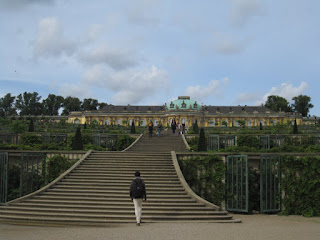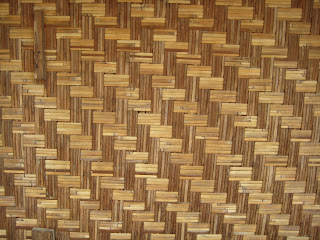





"The real voyage of discovery consists not in seeking new landscapes, but in having new eyes"--Marcel Proust
Follow me on twitter, @alissalee or on Instagram @wideeyeswiderworld






South Carolina is a big state, so although we crossed the border shortly after Athens it took us all of the afternoon and some of the evening to arrive in Charleston. I could tell that the sunset was going to be incredible, and we decided we wanted to go out to the tip of the city, an area called the Battery where the river and the ocean meet, to watch. But in my hurry to get us there, I got turned around with the map and we ended accidentally going in the opposite direction. We watched the orange ball flicker from behind buildings as we raced the sunset and lost, but it didn't matter. Even without the sun, that night's sunset was one of the best of my life. We jumped out of the car and ran across the manicured lawns of the Battery to the river. There was a light breeze, warm and moist as bath water, and we watched pelicans swoop over the water in the blue air as the horizon turned deep pink and orange.
As if all that weren't magical enough, as we watched the horizon transform we heard a strange squeaking. For a sudden period of ten minutes only a swarms of insect appeared, and a cloud of bats followed, making strange, gravity-defying turns in the air to feed. As quickly as they came, they were gone (and the insects with them.) We were left to marvel at the water, the sunset growing more vivid by the minute on one side, and a full, white moon hanging 180 degrees behind, over the rooftops of the city.
Light on a colonial house, on the walk back to the hostel
We found ourselves in one of Charleston's main arteries, choosing a casual restaurant where we could dine outside and enjoy our tank-topped-at-night freedom. Our server, Isaac, was very friendly and made small talk as we ate our meal and enjoyed the mix of spring air and margaritas. Originally from Mexico, he was now a geology student at the nearby College of Charleston, and he offered to be our guide to the city the next day. We gratefully accepted. The rest of the night was spent on our hostel's front porch, drinking Yuengling and talking about the world--just the way nights at hostels always seem to go.
The next day was especially full because we weren't sure when we would be leaving Charleston. We spent the morning exploring a few of the old neighborhoods, ending up in the tourist hub of the city on a carriage ride. Normally, we would not have entertained the possibility of this kind of activity. But because I was still recovering from my broken ankle it actually made a lot of sense, as we could cover a large area without exacerbating my injury. Besides, the carriages were quite charming.
Images from Charleston's Civil War-era neighborhoods:
(Note the intense fence, for guarding against slave revolts)
The triple porch is very typically Charleston
The tour was quite interesting. We learned a lot about Charleston history, about the high life now (for example: Many of the nicest houses use gas lamps instead of electricity because it's more expensive and thus shows their wealth. Also, many Charleston houses are very long and skinny because house owners were taxed based on their street-front property, rather than the overall area of their houses.) I think my favorite thing we learned was about the little old Charleston ladies who still refer to the Civil War as "The Recent Unpleasantness."
The tour ended back where it began, in the midst of an enormous, tourist-soaked craft market. We embraced the commercialism for a moment, getting lost in the sea of people and art. I took the lesson I learned in China about controlling your tourist experience and put it to good use: I ended up buying a woven basket from one of the many women dotting the market, who stood out because of their ebony skin and what seemed like acres of woven baskets surrounding them. These women were part of the Gullah culture, an ex-slave community that grew up in the barrier islands of the Carolinas during and after the Civil War. The baskets are traditional crafts of Gullah people, and I took it upon myself to talk to the women who made my basket, something I didn't see too many other people bothering to do. She told me about learning to weave from her mother; about how her whole family is part of the process; about how her elderly father still goes out every week on Sundays into the marshes to collect the reeds to dry and make baskets. Emma laughed and told me I was "such an anthropologist." Maybe it's true, but for me that made the experience, and the basket, all the richer. Why buy something if you don't know the story behind it? Really, for me, the story is the most valuable part. The basket is really only a reminder of that story.
Woven Gullah baskets at the market

That afternoon we explored the city further, walking through the lovely multi-colored neighborhoods to one of the oldest synagogues in the United States, Temple Kahal Kadosh, which dates back to the Civil War. I was not expecting to get in touch with my Jewish heritage during a trip to the American south, but this temple was beautiful and story of the Charleston Jews quite interesting. This was the place that the Reform movement took hold in the US, and there was some interesting lore about tensions between Reform and Orthodox before the split. The building was beautiful; we were given a short tour, and both of us bought "Shalom Y'all" t-shirts in the gift shop.
The fourth-oldest temple in the United States
The caption above the bimah (platform) says "Know Before Whom Thou Standest"
It was about this time that Emma and I called Isaac, our waiter from the night before. He met us in the Battery and led us around the city to some of his favorite neighborhoods. We had a delicious picnic from a restaurant called Five Loaves, heard a little about South Carolina's geological history, and walked along a promenade by the beautiful harbor, where the river meets the sea. The three of us plus Susan, one of Isaac's college friends, spent what became another spectacular sunset at Isaac's favorite rooftop bar, where I had a mint julep in honor of where we were.
Sunset at the rooftop bar
As dusk fell, we were faced with an important decision. Our hostel was full for the night, and we had originally planned on moving on to the north part of the state that evening. Having decided we were too in love with the city to leave quite yet, we had thought we might spend the night on the beach, but the weather was a bit chilly for that kind of adventure. Luckily, Isaac was kind enough to offer to let us stay in his apartment for the night. Without realizing it, we had discovered couchsurfing.
The evening that followed was wonderful, surreal, hilarious. Isaac took Emma and me back to his house, then invited over a friend of his, John, who was on furlough from the Army. John was a tall, lanky blond soldier with an aristocratic southern accent (a la Rhett Butler). As we later discovered, he also had a photographic memory, but that didn't become evident until he rattled off a list of the past 15 presidents and their vice presidents, in order and with dates of office, during a lightly alcoholic game of Trivial Pursuit.
The evening got continually weirder as we ventured to, of all things, a Red Sox bar in downtown Charleston, then home again after enjoying some pool and the rowdy atmosphere. John lost his social skills as he drank, but that made him more interesting to be around. In fits and starts, he told us the story of a nerdy, intensely smart boy in rural South Carolina who knew early on that something about how his brain worked was different. Frustrated that the teachers at his school could not give him the education his overactive mind needed and unable to come up with the funds to escape to college, he had finally joined the military, eschewing higher education. The violence and psychological stresses of his life and his sheer intellectual capability had come together to create a formidable, but slightly off-kilter, intellect.
John had a fabulous sense of humor but little concept of social mores. He told jokes and stories entertainingly but had no sense of physical boundaries. One minute he leaned in too close, telling us about his anti-piracy missions in India and boasting about the number of pirates he'd killed (19); the next he flopped across the couch, detailing an intricate, light-hearted system for rating women on the street and an in-depth theory about Woody Allen films. In short, he was the sort of character you only meet on a road trip and the kind that every road trip needs.Needless to say, an evening with him and Isaac provided plenty of entertainment and food for thought. We went to bed at 3:30 and were up at 6 to drive to the Isle of Palms for sunrise on the beach.


























